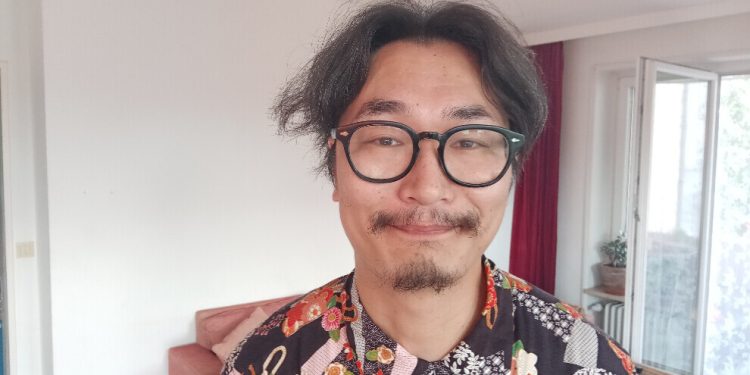NEWS CENTER – At the beginning of July, Japanese philosophy professor Motonao Mori from Nagasaki University was a guest in Hamburg to talk about Japan’s view of the alternative way of life in Rojava at TATORT Kurdistan Café. Motonao Mori finds Democratic Confederalism as “ideal” as a social structure and believes that the Rojava utopia can become a reality in Japan as well.
Can you introduce yourself for the readers?
My name is Motonao Mori. My name can also be read as Gensai. I work as a professor of philosophy at Nagasaki University’s Faculty of Global Humanities and Social Sciences. My specialty is anarchism.
How did you hear about Rojava?
There are three events that lead me to the subject of Rojava. The first is my direct connection with David Graeber. I met him at a conference in London. When I contacted him, he told me that the most important political center in the world right now is Rojava.
The second is that I get a job at Nagasaki University and work there. I learned that a person named Abdurrahman Gülbeyaz worked there as a semiotics professor at the university and was Kurdish. I contacted him later and he told me a lot. This has been a source of motivation for me.
The third case was the reality of the foreigners’ law in Japan and how Japan treats refugees, especially Kurdish refugees, and how terrible it is. I felt a lot of anger in this regard. I thought of these facts in the context of anarchism. This brought me to the Rojava phenomenon. I was intrigued by how such an autonomous region emerged and the dynamics behind it. There was also one last factor: the status of women in Japan. Japan is also far behind in this regard. These were the reasons that prompted me to research Rojava.
Is information about the revolution in Rojava or Kurdistan common in Japan or is it more specific knowledge learned at university?
People do not know Rojava even at university. So relatively unknown.
Do you have any thoughts on how the Abdullah Öcalan paradigm will be promoted in Japan?
I think it is possible to make this paradigm known and understandable in Japan and to give people this idea. For me as an anarchist, the idea of confederalism as a social structure is ideal. I was familiar with this idea even before I got to know Öcalan’s paradigm. Especially through Murray Bookchin and his social ecology. I researched these ideas, especially since Japan is a disaster country and natural disasters like earthquakes or tsunamis tend to occur.
Within the scope of Bookchin’s theory, there were also social philosophical ideas in this direction in Japan. The problem was how to rebuild a society after a large-scale natural disaster. The idea of a society where people could live together in meaningful interaction with nature came to the fore. From this perspective, that is, from the perspective of people in Japan where the idea already exists, I can think of Öcalan’s system for Japan. So I see this paradigm spreading in Japan as well.
I also introduced Jineology, which may be of great importance to Japan. On the one hand, in the context of social ecology, and on the other hand, in the context of the historical development of women in Japan. The current situation of women in Japan is dire. However, this has not always been the case. In the Edo period (1603 to 1868) there was a society in which women played a central role. This topic has been explored by Takamure Itsue and Yoshihiko Amino et al. There was a matriarchal culture. Women were not always completely oppressed. After European culture came to Japan in about 1865, patriarchy also settled in Japan. This was a European issue and it has manifested itself so much that the role of women in Japan is now very low.
Do you think such ideas could spread in Japan? Is this a realistic picture?
My 2017 book “Introduction to Anarchism” sells very well. This may be a sign that anarchism may nevertheless reach Japanese society.
The difference between Graeber, Bookchin and Öcalan is that Öcalan puts gender first. She says that without the emancipation of women, society cannot be emancipated. How is the issue of gender addressed in your new book?
The new book is about violence in general, theoretically and practically. This was not yet a topic in the book on anarchism, because I had not yet dealt with it. YPJ and Jineology come into play in the new book.




